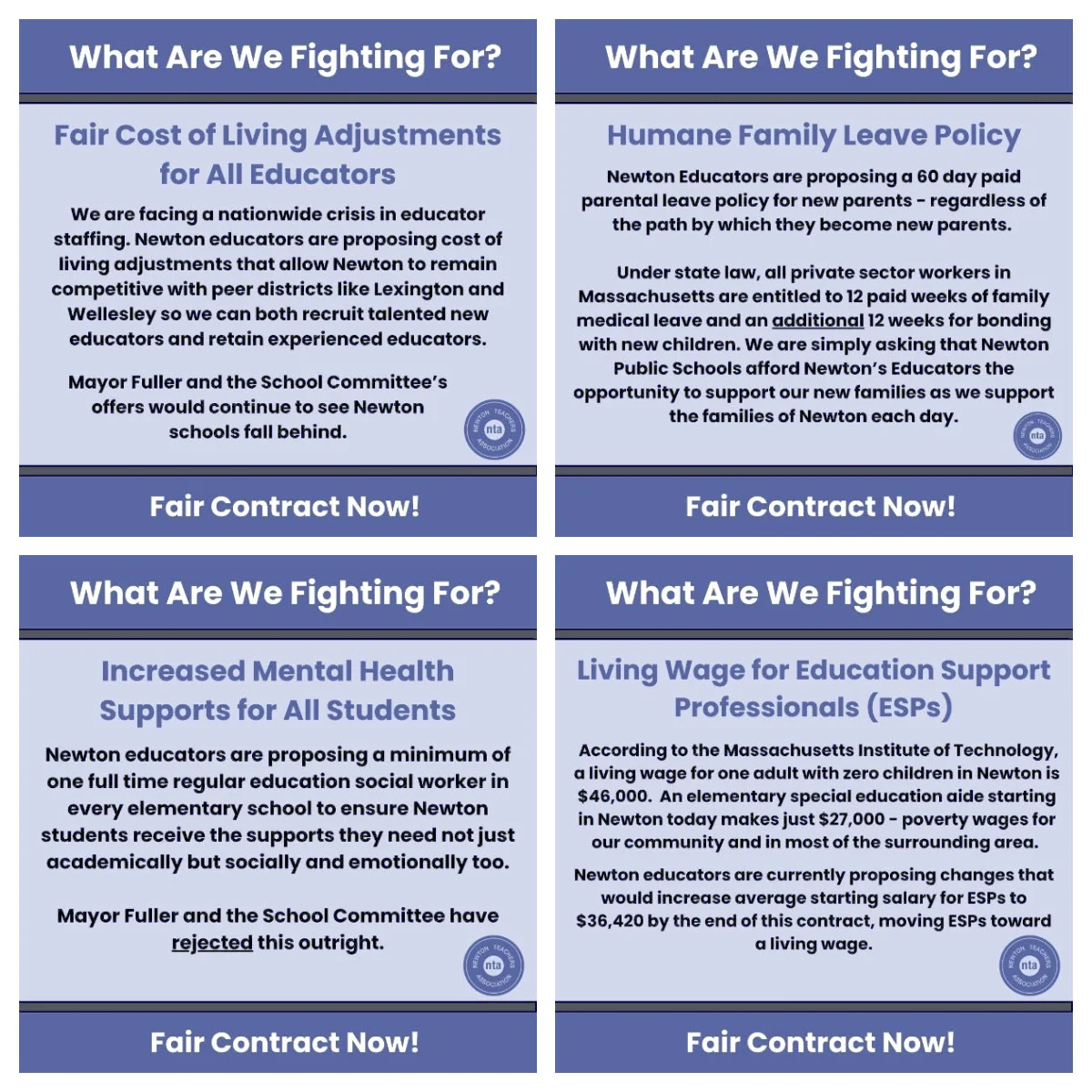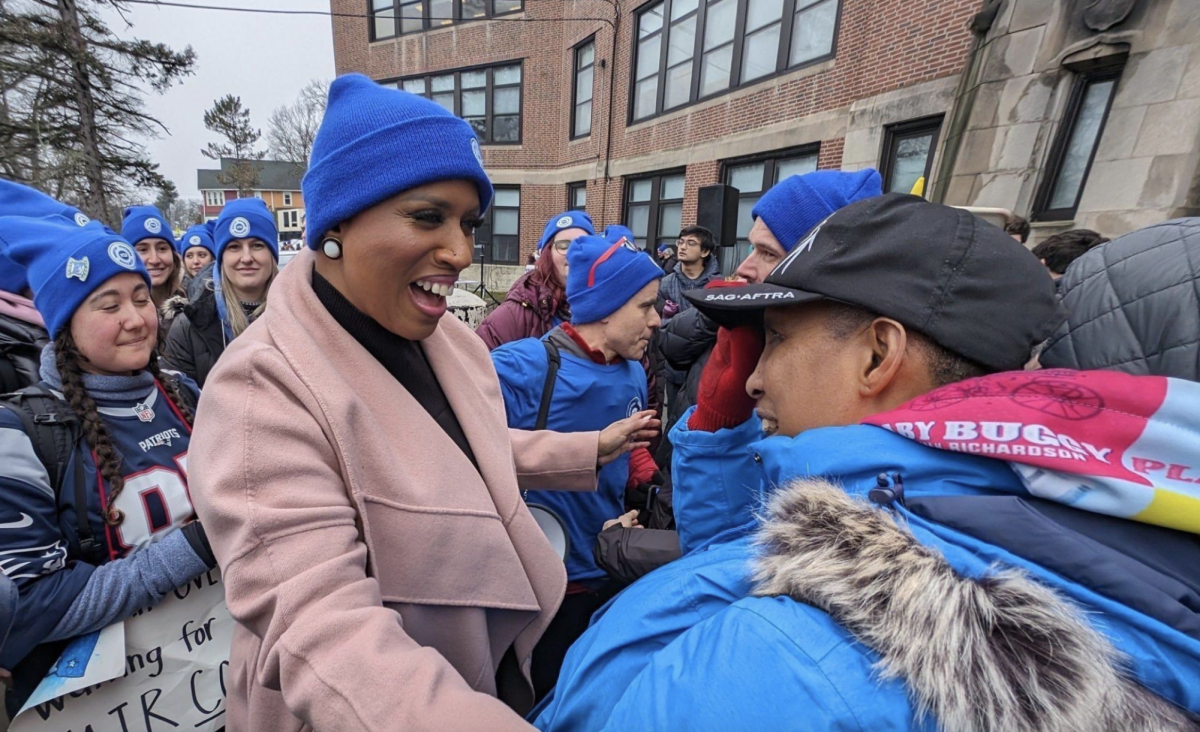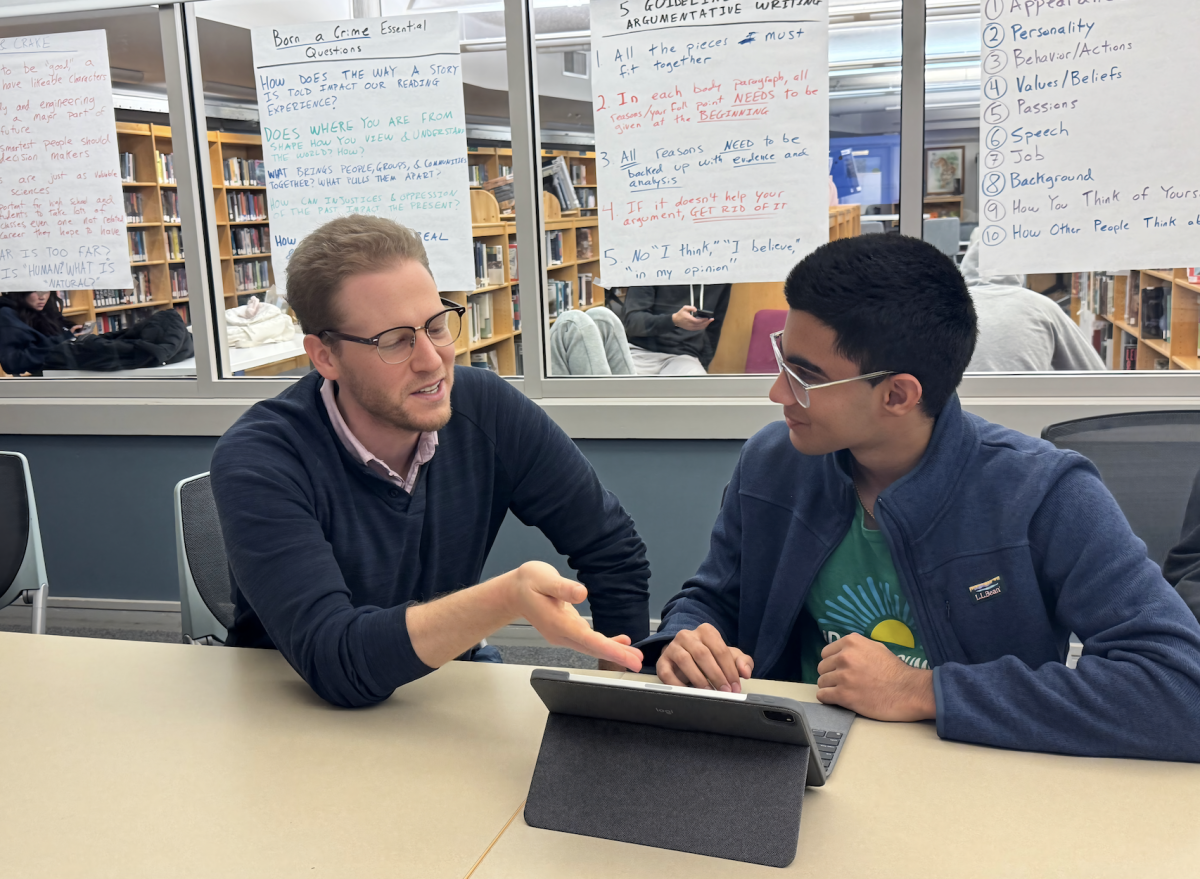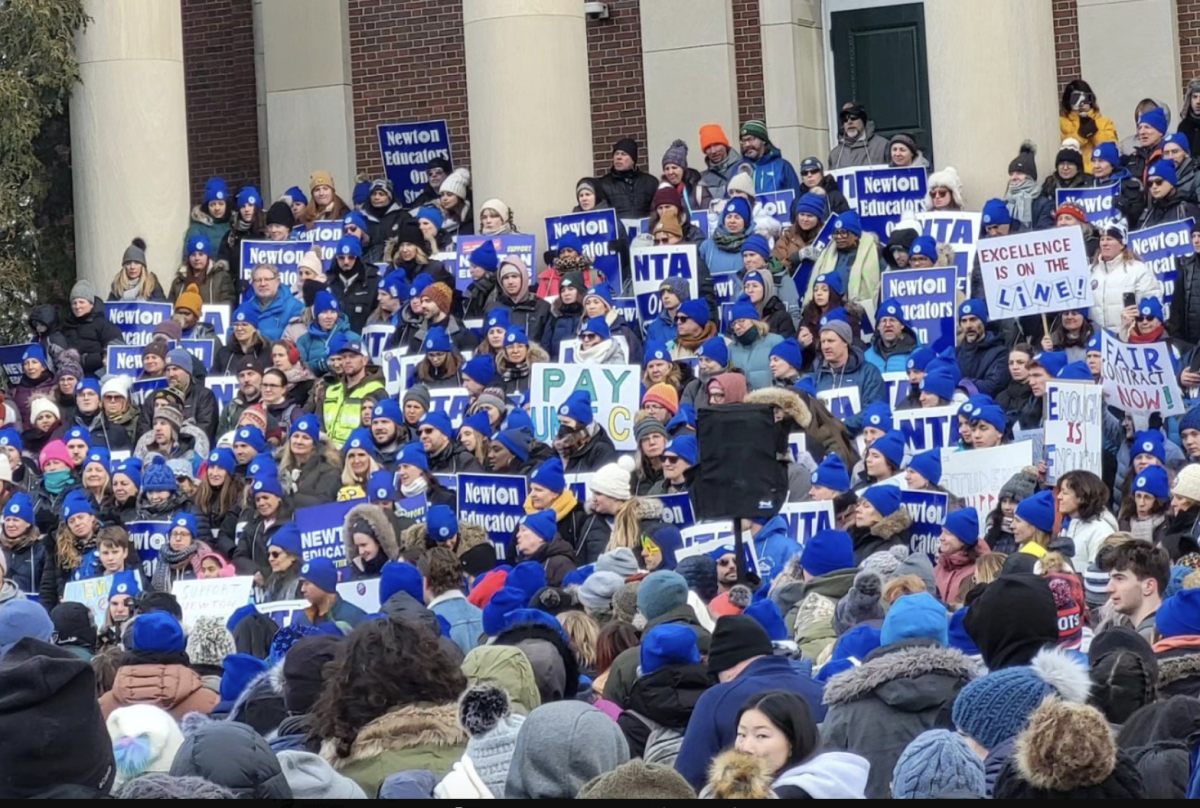The Newton Teachers Association (NTA) strike, which lasted for 14 days, ended on Friday.
Thankfully, the NTA won its dedicated fight for better working conditions, including humane paid parental and family leave, higher wages for Unit C employees (assistants and behavioral therapists), and added payment for teachers who voluntarily substitute classes.
Additionally, the NTA aimed to advocate for more preparation time and increased access to social workers. All of these are elements necessary to creating a school system that functions on fairness.
The two-week strike, which came about after 16 months of failed negotiations, proved essential to forcing the School Committee to finally come to the table, and begin doing their jobs to create just working environments for educators.
Although I am a private school student, this fight meant a lot to me as a previous NPS student and as the daughter of an NPS educator.

Although I didn’t see my mom grading papers or planning lessons, the strike created new work to be done.
The emotional toll was evident, and by the end of the first week, I could see the spirit shift from energetic, to tired and doubtful, a way no teacher should have to feel about their rights.
Mayor Ruthanne Fuller could have done a lot more to support teachers in this fight, but chose to take a backseat position—one which I feel was insensitive and irresponsible.
Congresswoman Ayana Presley, representing Massachusetts’ 7th District, addressed protestors on January 24, asserting, “You can’t say public education is a public good if you don’t invest in our educators.”
Although Presley does not officially represent students or educators in the Newton Public Schools (as we are District 6), her words express the thoughts of many.
Presley’s involvement in the rally is an example of non-Newton support compensating for the lack of support by Newton politicians like Mayor Ruthanne Fuller and Congressman Jake Auchincloss.
Neighboring teachers’ unions, including Boston and Somerville, also attended rallies and voiced their support.

To fully understand this struggle, as a Newton resident, I attended an NTA rally on Saturday, Jan. 27 in front of City Hall.
The comradery and powerful connection that I saw form between teachers through this struggle was on clear display.
I also saw many signs and heard many voices in the crowd, expressing that teachers just want to get back to their classrooms and that they love their jobs and their students.
Classroom teachers and special educators play a vital role in our community, working to inform youth and acting as support systems for students: their voices deserve to be heard.
Delores Coletti, a long-standing teacher’s assistant at Brown Middle School, emphasized the critical role of public support in the NTA’s struggle, highlighting how community involvement significantly impacts such movements.
“The citizens need to know the truth,” Coletti said, also emphasizing the importance of parent support. “Our public voice needs to be heard for the benefit of Newton students. We are fighting for our students to have the best possible experience in our schools.”
Under the now-expired contract, “the annual starting salary for a part-time teachers’ aide in Newton schools [was] $27,000, and $32,300 for full-time aides,” according to GBH.
The resolution of the strike led to the cancellation of the upcoming break to compensate for the missed classroom days.
Despite not being traditional school days, the time during the strike involved significant effort and activity from teachers, indicating that it was far from a period of rest or leisure.
Seeing as I have many close connections in the NPS world, I saw first-hand how much work went into obtaining a fair contract.
From canvassing to standing in the cold for rallies twice a day, this was no vacation.
Extending the school year into June to meet the state’s instructional day requirement could lead to challenges, including teaching in hot, non-air-conditioned classrooms.
It might also conflict with students’ pre-planned summer activities, or even affect attendance and overall learning conditions.
Recognizing the healing process for students and teachers is crucial, as the assumption that school operations will immediately return to normal is not realistic.
Despite the challenges and adjustments in the academic schedule, the agreement is a positive one, and the accomplishments made by the negotiations team are commendable.
Even though students and teachers are all coming from different places returning from this strike, I feel that it is important for all who are affected to know what was accomplished during this period.
Especially for students who are being taught by teachers, and guided by aids and social workers, they need to be informed of how their educators are being served by their school system, so they can support them, a role we have learned is integral through the recent strike journey.
We all hold the power to help those who are not getting the support they need, and this strike was an example of how the community voice is powerful and capable of making change.























































